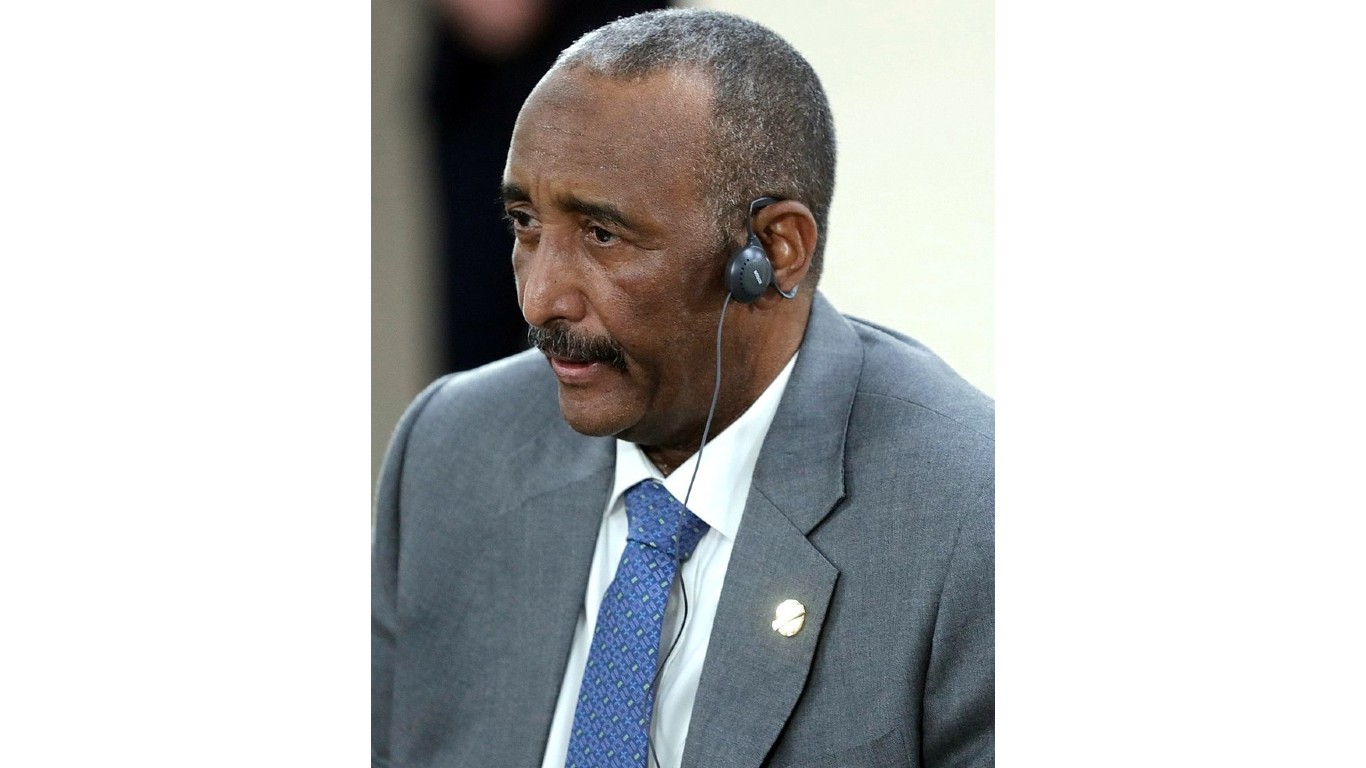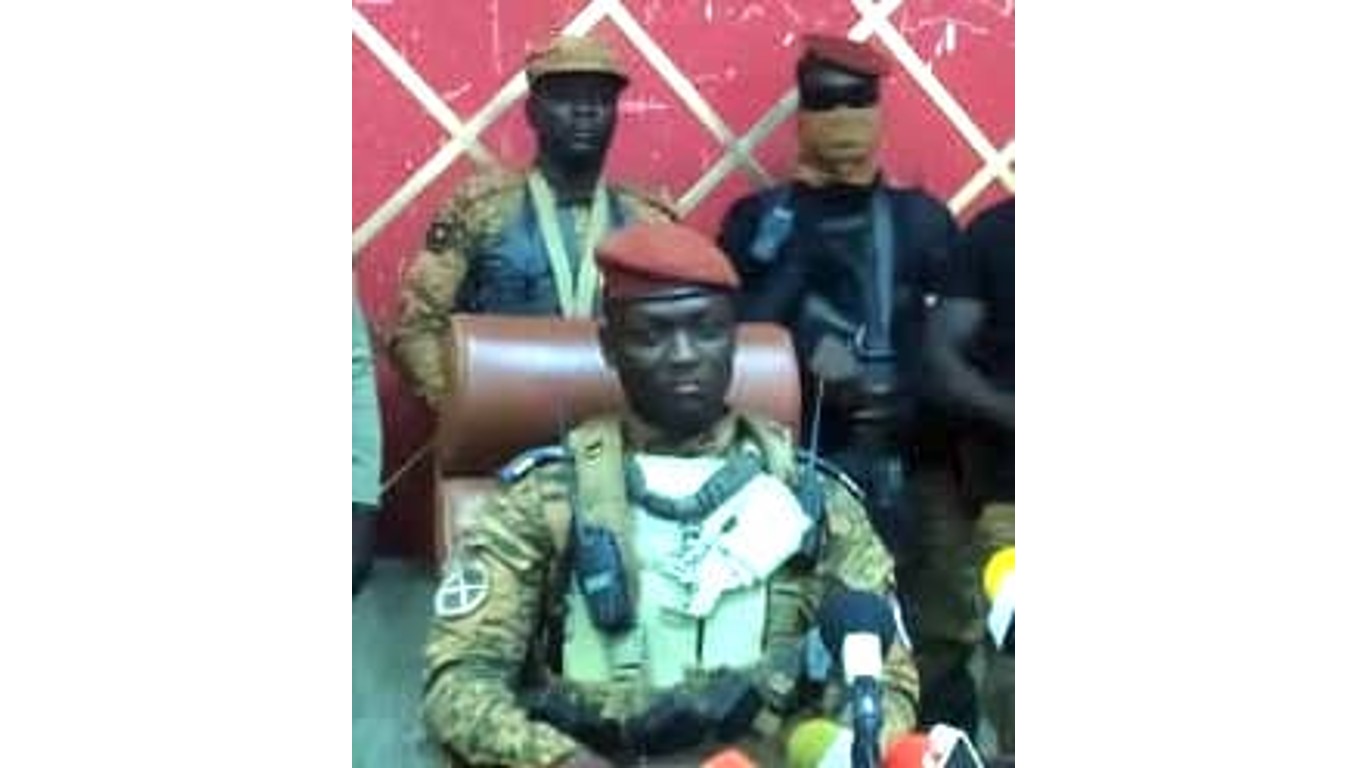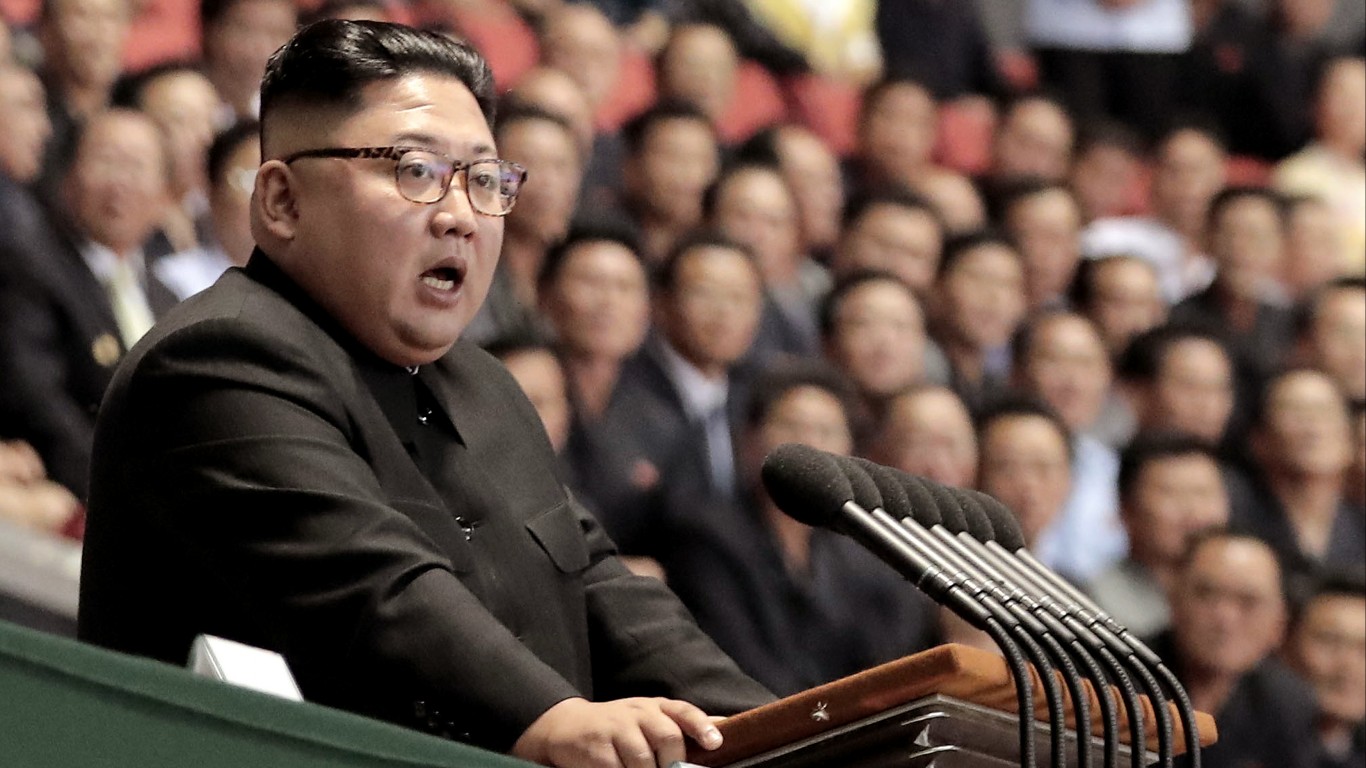
The number of countries moving toward authoritarianism is more than double the number moving toward democracy, according to the Stockholm-based International Institute for Democracy and Electoral Assistance. And countries lacking democratic institutions — free and fair elections, a separation of powers, and systems of checks and balances — are becoming more repressive. (These are the worst countries for press freedom according to Reporters Without Borders.)
While authoritarianism is on the rise globally, only a handful of these backsliding democracies are straight-up military regimes. Countries like Hungary and Mexico have seen an uptick in authoritarianism in recent years, but their leaders are still somewhat accountable – and civilian.
Eleven countries are currently under strict top-down military control, based on a 24/7 Wall St. review of recent news reports on political status and conflicts in countries around the world. We considered countries known to be under military rule or those that have a significant military influence. We also included some countries currently fighting civil wars, mostly those in which the military has an outsize presence in political and policy decisions.
Eight of these countries are in Africa, including the central landlocked war-torn country of Chad that was controlled by Gen. Idriss Déby from 1987 until his death at the hands of rebels when visiting front-line troops in 2021. After his death, his son, Gen. Mahamat Idriss Déby, was named interim president by a transitional council of military officers that also dissolved the government.
Countries under military control often have some kind of “transitional” organization, the pretense being that the armed forces are a temporary caretaker with an “interim” leader until free and fair elections can take place.
Guinea is another example of this phenomenon. The West African country held its first free and fair elections in 2010, sweeping in its first all-civilian government. But economic troubles and President Alpha Condé’s attempt to remain in power beyond the established two-term limit led to mass protests, a brutal crackdown on demonstrations, and a military coup in 2021. Col. Mamady Doumbouya is currently serving as interim president, while a National Transitional Council has been tasked with planning new elections.
But those next “free and fair” elections can take years to coordinate. And even then, the military can remain the power in the shadows. (Also see, the U.S. government is involved in secret wars in 15 countries.)
A good example of this is Myanmar. The military had instituted modest reforms to give the government a civilian face after the Saffron Revolution in 2007, and Aung San Suu Kyi became the country’s first prime minister after her party won the majority in parliament in 2015. But it became clear the military had never intended to cede the power it has wielded since 1962. A coup in February 2021 installed Gen. Min Aung Hlaing to power and sent Suu Kyi to prison.
Here are the countries currently living under military rule.

North Korea
> Most recent start of military rule: 1945
> Current head of state: Supreme Leader Kim Jong Un
The Democratic People’s Republic of Korea is the world’s oldest existing military dictatorship, emerging after Japan’s World War II surrender in 1945 and the partition of the Korean Peninsula three years later. Kim Jong Un is the country’s supreme leader and supreme commander of the Korean People’s Army, the world’s fourth-largest military by personnel count as of 2022, according to the U.S. Council on Foreign Relations.
North Korea, with a population of 26 million, is harshly authoritarian with a massive internal security apparatus. The Ministry of State Security is responsible for operating North Korean prison camps, investigating cases of domestic espionage, repatriating defectors, and more.
[in-text-ad]
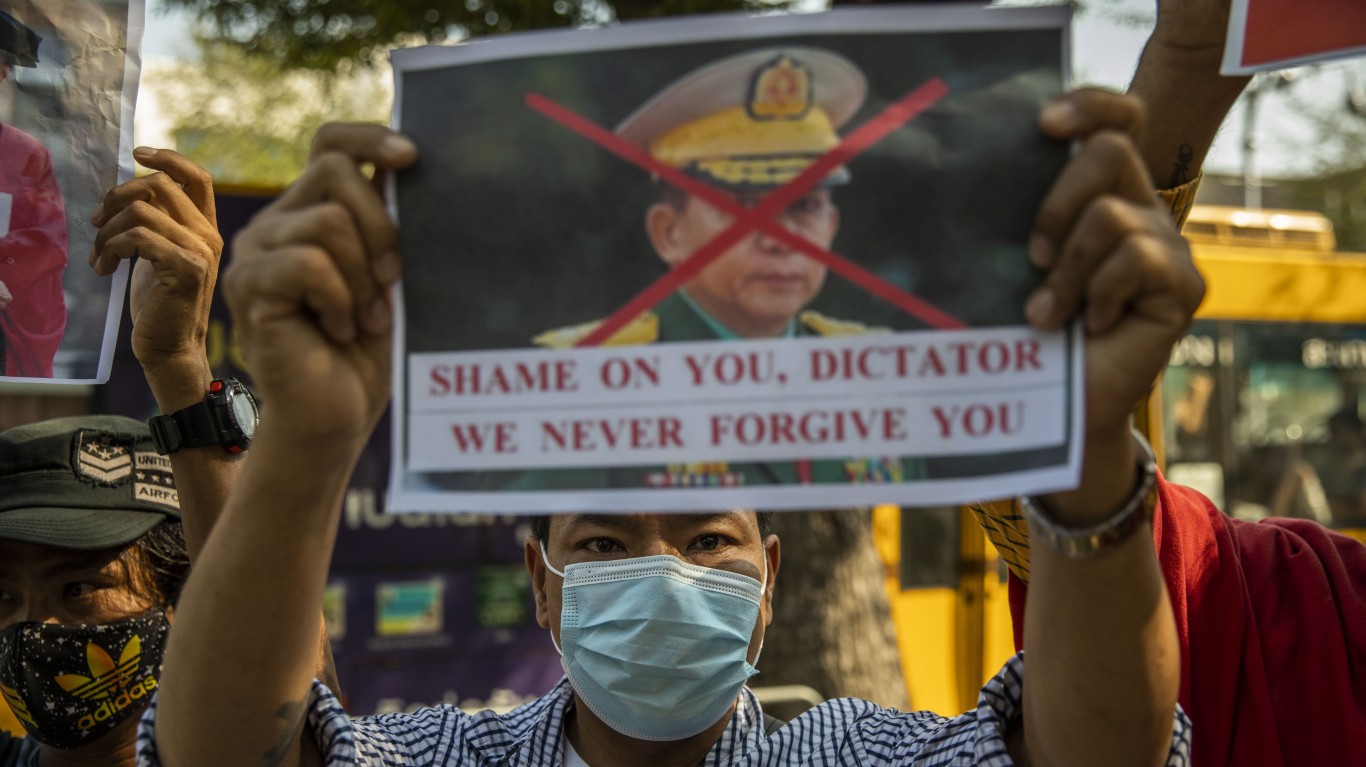
Myanmar (Burma)
> Most recent start of military rule: 1962
> Current head of state: Prime Minister, State Administration Council Chair, Sr. Gen. Min Aung Hlaing
Myanmar has been under strict military control since 1962. The military junta permitted an election in 1990 but rejected the results when Aung San Suu Kyi won in a landslide, a victory for the main opposition National League for Democracy party. Suu Kyi spent much of the next 20 years in and out of house arrest.
After the Saffron Revolution of 2007, the military instituted modest reforms to give the government a civilian facade. In 2010, Suu Kyi was released from house arrest and quickly won a seat in parliament. In 2015, a landmark election brought the NLD into power, and Suu Kyi became the country’s first State Counsellor, the equivalent to a prime minister. After further NLD gains in the 2020 elections, Gen. Min Aung Hlaing launched a coup in February 2021. Suu Kyi was sentenced to 33 years in prison on various charges, and the military began a brutal crackdown on pro-democracy activists and opposition rebel groups.
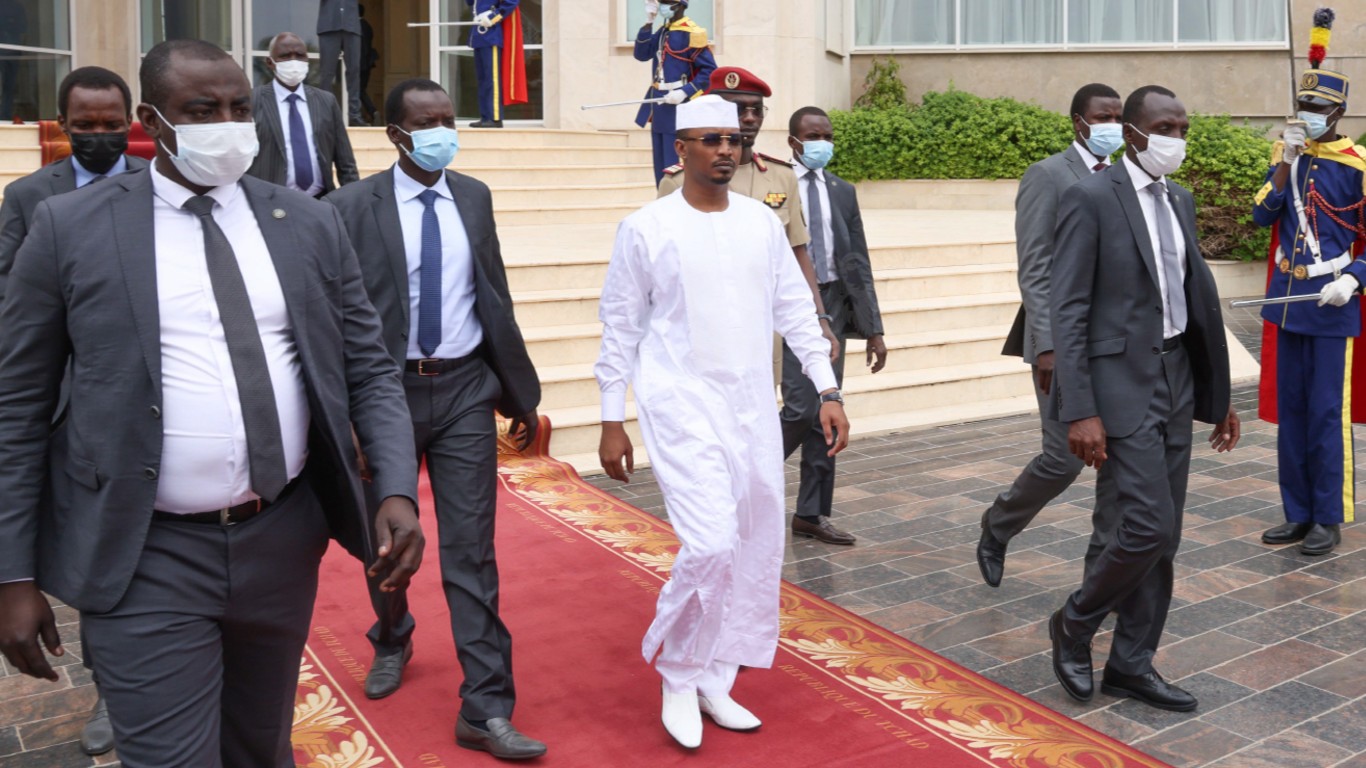
Chad
> Most recent start of military rule: 1987
> Current head of state: Transitional President Capt Ibrahim Traore Interim President Mahamat Idriss Déby
Since its independence from France in 1960, Chad has been an unstable country ruled intermittently by rebel leaders or the military. In 1987, Chadian Gen. Idriss Déby overthrew President Hissène Habré, a U.S.-backed insurgent leader viewed at the time to be a foil against Libyan strongman Muammar Qaddafi, but who would later be convicted of war crimes and die in a Senegal prison in 2022.
Déby, who also oversaw a brutal regime, led the country until he was killed by rebels in April 2021. Gen. Mahamat Idriss Déby now heads a transitional military council following the death of his father and the dissolution of the government and national assembly.
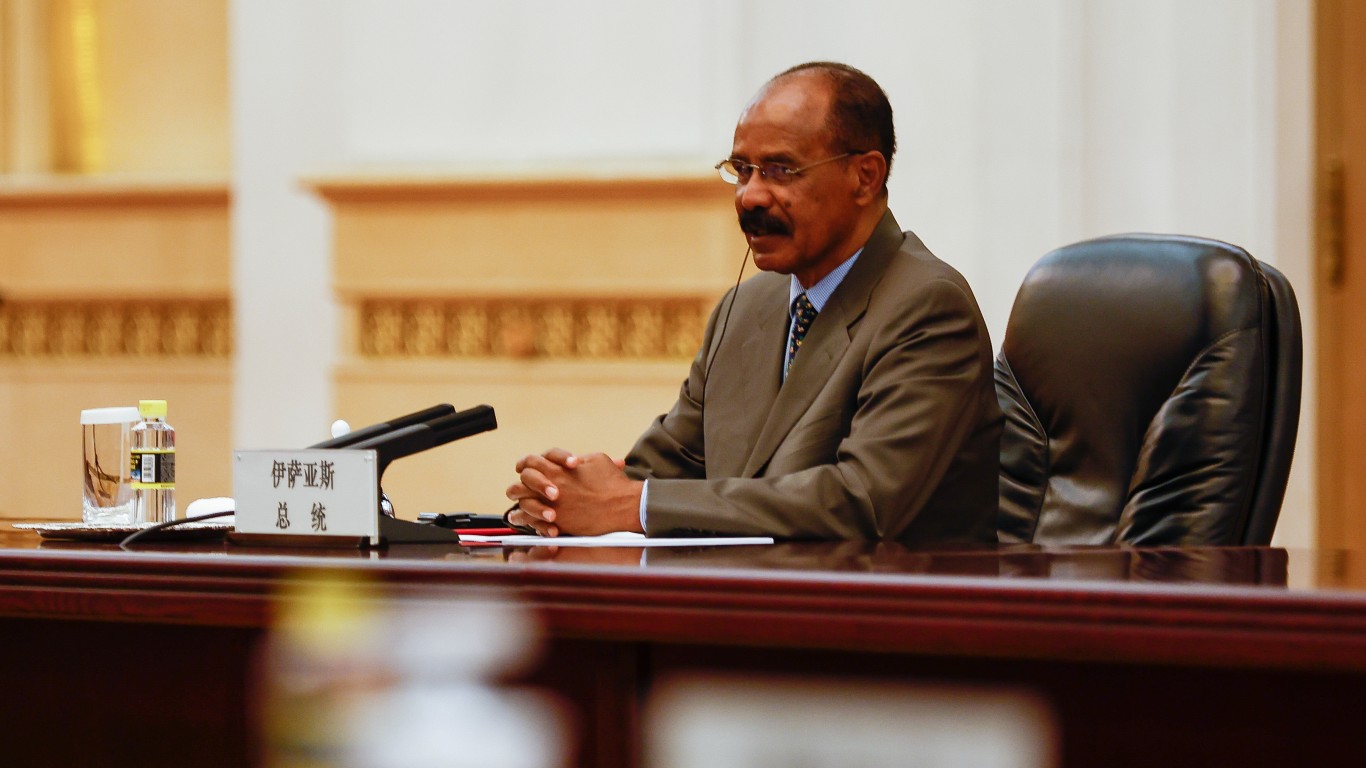
Eritrea
> Most recent start of military rule: 1993
> Current head of state: Isaias Afewerki
Ethiopia annexed Eritrea in 1962, leading to a 30-year conflict. Eritrean fighters defeated government forces in 1991, and Eritreans approved independence in a 1993 referendum that created a presidential republic. But Isaias Afewerki has been the country’s only president since then, having orchestrated a highly militarized society through an unpopular national system of mandatory military conscription.
Eritrea, a country of 6.3 million people, has been compared to North Korea for its autocratic and repressive military-controlled political system. The People’s Front for Democracy and Justice is the founding, ruling, and sole legal political party in the country.
[in-text-ad-2]
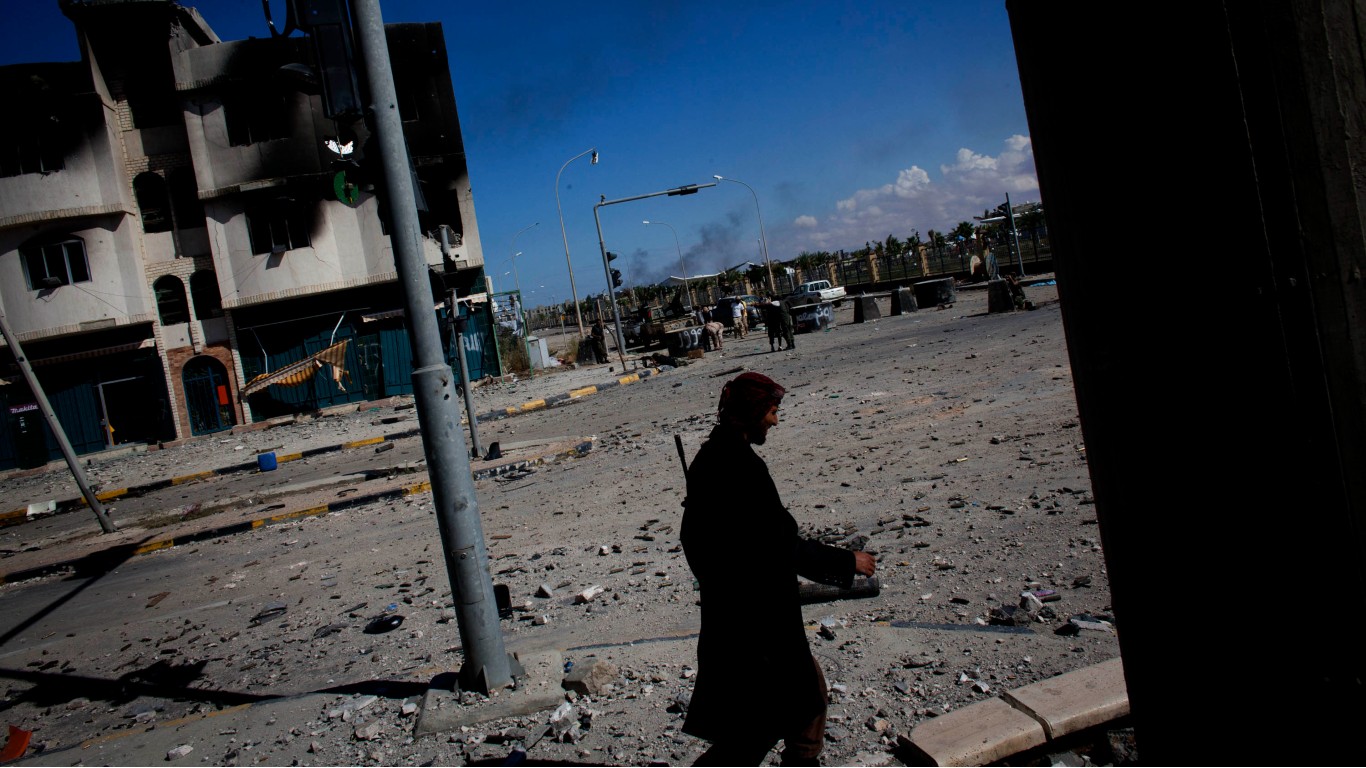
Libya
> Most recent start of military rule: 2011
> Current head of state: Abdul Hamid Dbeibeh / Fathi Bashagha
In 1969, a bloodless coup brought Col. Muammar Gaddafi to power. Popular unrest in the region in 2011 led to a brutal crackdown by Gaddafi that spawned an eight-month civil war and Qaddafi’s capture and killing by forces loyal to a transitional government. Libya remains in a state of civil war.
The House of Representatives voted in March 2022 to replace interim Prime Minister Abdul Hamid Dbeibeh, a businessman who once served as Gaddafi’s public works czar, with Fathi Bashagha, a former Libyan air force pilot trainer who has support of the Libyan National Army. Dbeibeh refused to hand over power, claiming an illegitimate vote. The U.N.-brokered interim Government of National Unity also claimed that power in this country of 7.3 million people must be handed over through a national election. The U.N. Support Mission in Libya announced a plan to enable presidential and legislative elections by the end of the year.

Central African Republic
> Most recent start of military rule: 2013
> Current head of state: President Faustin-Archange Touadéra
The Central African Republic won independence from France in 1960, but the death of independence leader Barthélemy Boganda in a plane crash months earlier instigated a power struggle that brought Jean-Bédel Bokassa, a military leader, to power in 1966. Bokassa named himself emperor a decade later before falling to a French-backed coup in 1979. A fifth successful coup in 2013, this time by the Séléka, a Muslim rebel group, unseated President Francoise Bozizé, who had seized power in a 2003 coup.
The brutality of the Muslim group was answered with a Christian version, which has also committed human rights violations. After the last coup in 2013, a transitional government led by Faustin-Archange Touadéra, an independent academic, was established. Touadéra was reelected in 2020, but has so far failed to quell violence among main armed rebel groups and the government, and armed groups remain in control of large portions of the country.
[in-text-ad]
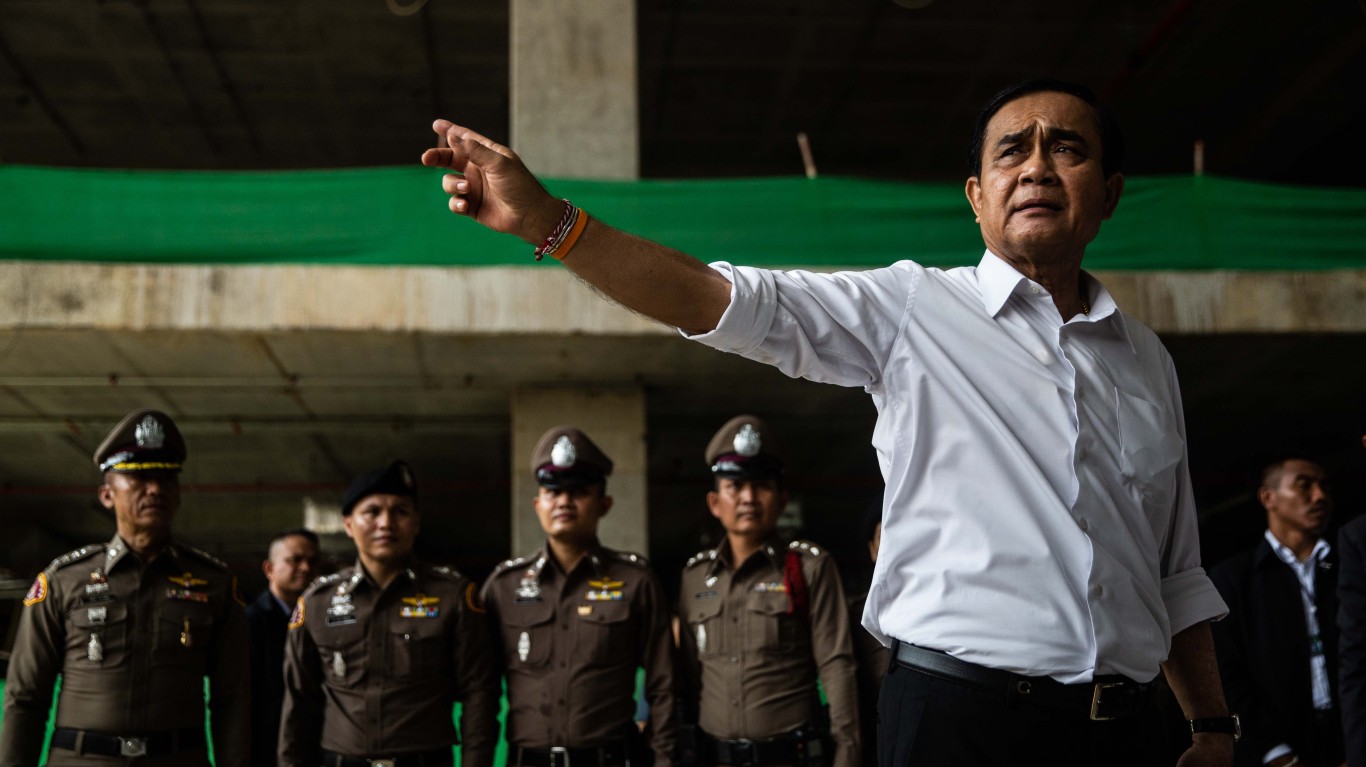
Thailand
> Most recent start of military rule: 2014
> Current head of state: Premier Gen. Prayuth Chan-ocha
A bloodless revolution in 1932 established Thailand’s constitutional monarchy, but alternated between periods of democracy and military rule over the years. Since 2005, five episodes of major protests, pitting the royalist nationalist establishment against its democratic challengers, rocked Thailand. A military coup in 2006 ousted Prime Minister Thaksin Shinawatra, the first non-constitutional change of government since a previous military coup in 1991.
After a series of large-scale protests, Thaksin’s sister, Yingluck Shinawatra, became the country’s first woman prime minister after the 2011 election. But in 2014, a constitutional court removed her from power and the Royal Thai Army enacted a bloodless coup that put Gen. Prayuth in power. In 2017, the new king signed a new constitution into law but a disputed May 2019 election kept Prayuth and the military in control.
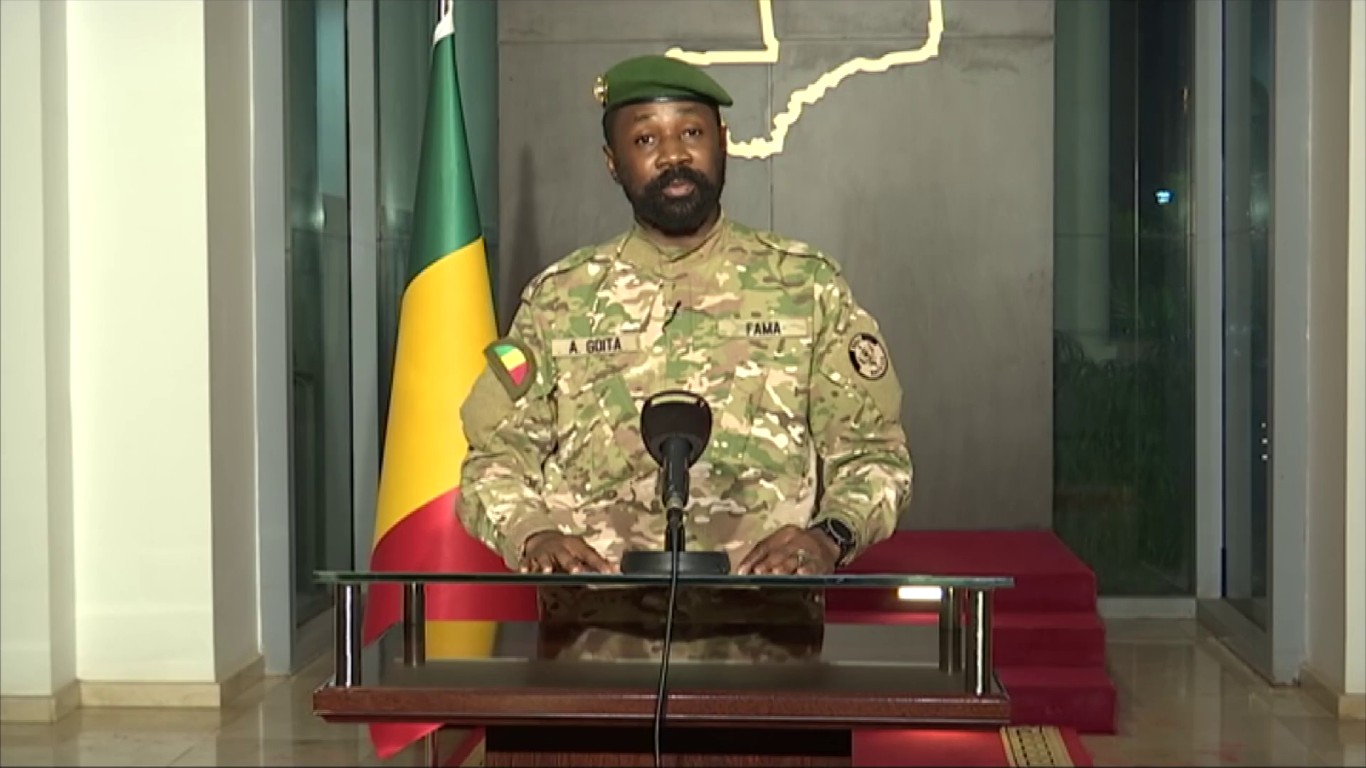
Mali
> Most recent start of military rule: 2020
> Current head of state: Transitional President Col. Assimi Goïta
Mali, a country of 22 million people, was ruled under a dictatorship until 1991, when a popular uprising and a military coup overthrew President Moussa Traoré. Following the coup, Alpha Oumar Konaré, a civilian and Marxist political activist, won two elections – in 1992 and 1997 – and stepped down in accordance with the two-term constitutional limit. His successor, Amadou Toumani Touré, a former army colonel who died peacefully in 2020 in Turkey, won reelection in 2007.
But rising ethnic tensions and Islamic extremism led to a military coup in 2012, though there were elections the following year. Despite the extreme instability, center-left academic Ibrahim Boubacar Keïta, won his second term in 2018, but he was overthrown and briefly arrested by the military in 2020. A year later, a second coup against interim President Bah N’Daw, a former military officer, installed Col. Assimi Goïta in power.
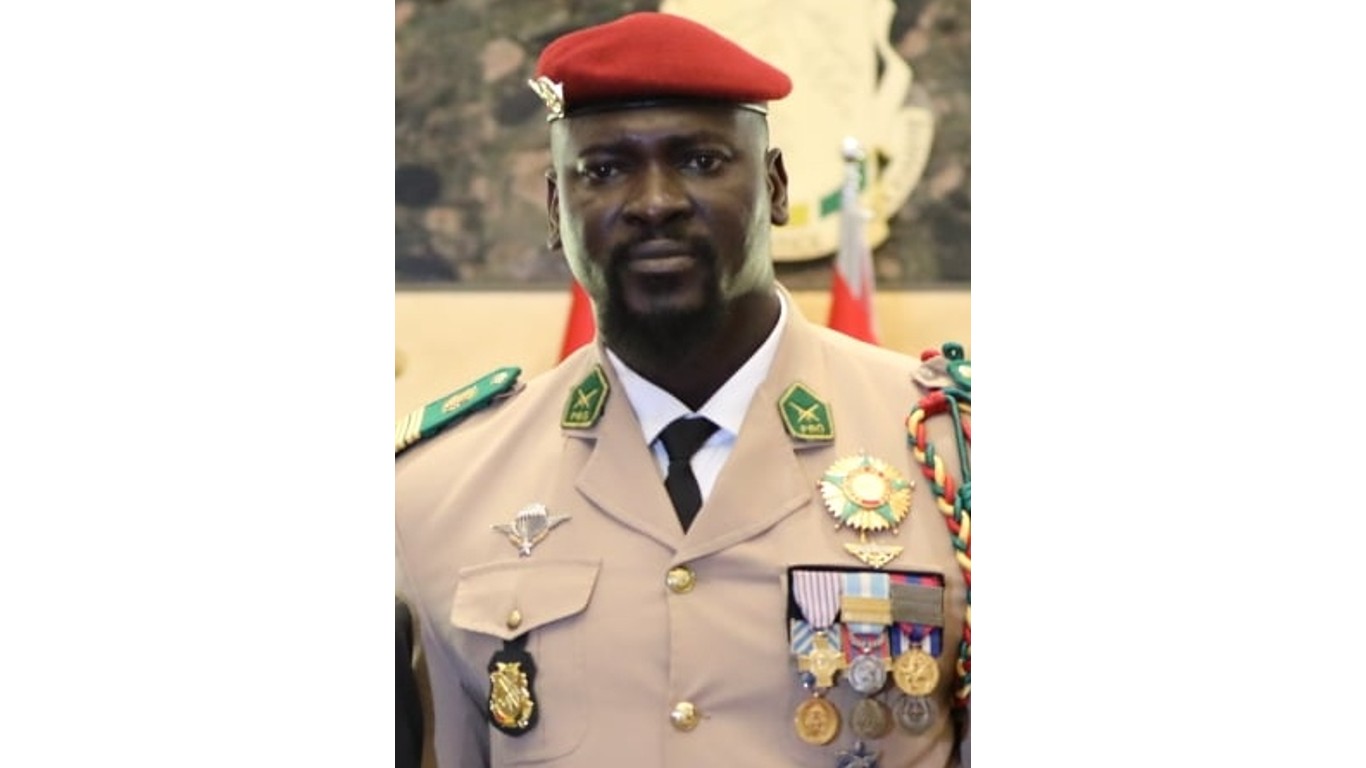
Guinea
> Most recent start of military rule: 2021
> Current head of state: President Col. Mamady Doumbouya
Guinea fell into a dictatorial regime following its independence from France in 1958, when political power in this coastal West African country of 13.6 million people was consolidated under Ahmed Sékou Touré, a radical Marxist authoritarian. Touré won a series of rigged elections until his death from heart failure in 1984, while receiving medical treatment in the United States. His death sparked a military coup by Gen. Lansana Conté, who continued Touré’s legacy of authoritarian rule and manipulated elections until his death in 2008 from an unspecified illness, leading to another coup that brought Moussa Dadis Camara, an army captain, to power.
Months later, after government forces opened fire on opposition protesters, Camara was wounded in an assassination attempt and went into exile. This opened the way for elections in 2010 and 2013, and the country’s first all-civilian government under education activist Alpha Condé. A military coup in September 2021 sent Guinea back under military control with Mamady Doumbouya serving as interim president.
[in-text-ad-2]
Sudan
> Most recent start of military rule: 2021
> Current head of state: Sovereign Council Chair and Commander-in-Chief of the Sudanese Armed Forces Gen. Abd-al-Fatah al-Burhan Abd-al-Rahman
In the years following its independence from Anglo-Egyptian control in 1956, Sudan had a democratic parliament and an elected civilian president, Ismail al-Azhari, who had served as the country’s first prime minister before independence. A 1969 coup brought Col. Jaafar Nimeiry to power. He quickly consolidated his control of government, and in 1972 quelled a 17-year conflict between the Muslim north and the non-Muslim south. (South Sudan would later become the world’s youngest country when it would gain independence in 2011.)
Nimeiry’s attempt to impose Islamic law (Shariah) on the county along with economic strife led to a second civil war and a bloodless coup in 1989 that kicked off Col. Omar al-Bashir’s 30-year reign. Bashir was ousted by a coup in 2019 that installed Abdalla Hamdouk, an economist and civil servant, as prime minister, who was tasked with orchestrating democratic elections by late 2022. The military ousted Hamdouk before the elections could be held and Gen. Abdel-Fattah Burhan, leader of an army junta, became chairman.
Burkina Faso
> Most recent start of military rule: 2022
> Current head of state: Interim President Mahamat Idriss Déby Transitional President Capt Ibrahim Traoré
While 2022 is listed as the most recent start of Burkina Faso’s military rule, the country’s first few decades following its independence from France in 1960 were clogged by repeated military coups. A successful coup in 1987 killed Thomas Sankara, a military officer who served as the country’s first president, and brought to power Blaise Compaoré, a former close associate to Sankara. Compaoré ruled since, winning four elections widely considered to be rigged. He resigned in 2014 amid a popular uprising after attempting to extend his 27 years in office.
In 2015, Roch Kaboré, a banker, was elected president and re-elected in 2020. In 2022, there were two coups in this country of 22.5 million people: one in January headed by Paul-Henri Sandaogo Damiba, a military officer who deposed Kaboré, and the other in September by Ibrahim Traoré, another military officer, who ousted Damiba.
Get Ready To Retire (Sponsored)
Start by taking a quick retirement quiz from SmartAsset that will match you with up to 3 financial advisors that serve your area and beyond in 5 minutes, or less.
Each advisor has been vetted by SmartAsset and is held to a fiduciary standard to act in your best interests.
Here’s how it works:
1. Answer SmartAsset advisor match quiz
2. Review your pre-screened matches at your leisure. Check out the advisors’ profiles.
3. Speak with advisors at no cost to you. Have an introductory call on the phone or introduction in person and choose whom to work with in the future
Thank you for reading! Have some feedback for us?
Contact the 24/7 Wall St. editorial team.
 24/7 Wall St.
24/7 Wall St.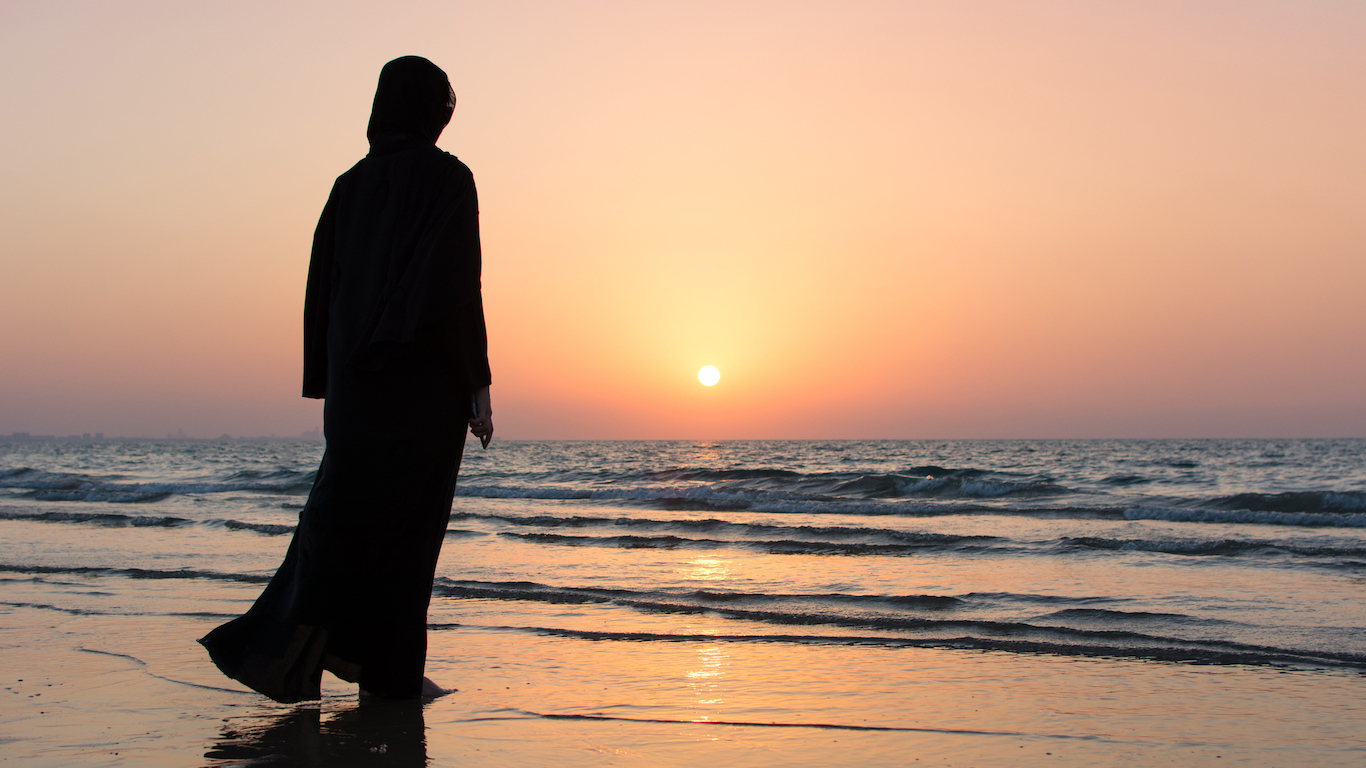 24/7 Wall St.
24/7 Wall St.